Your cart is currently empty!
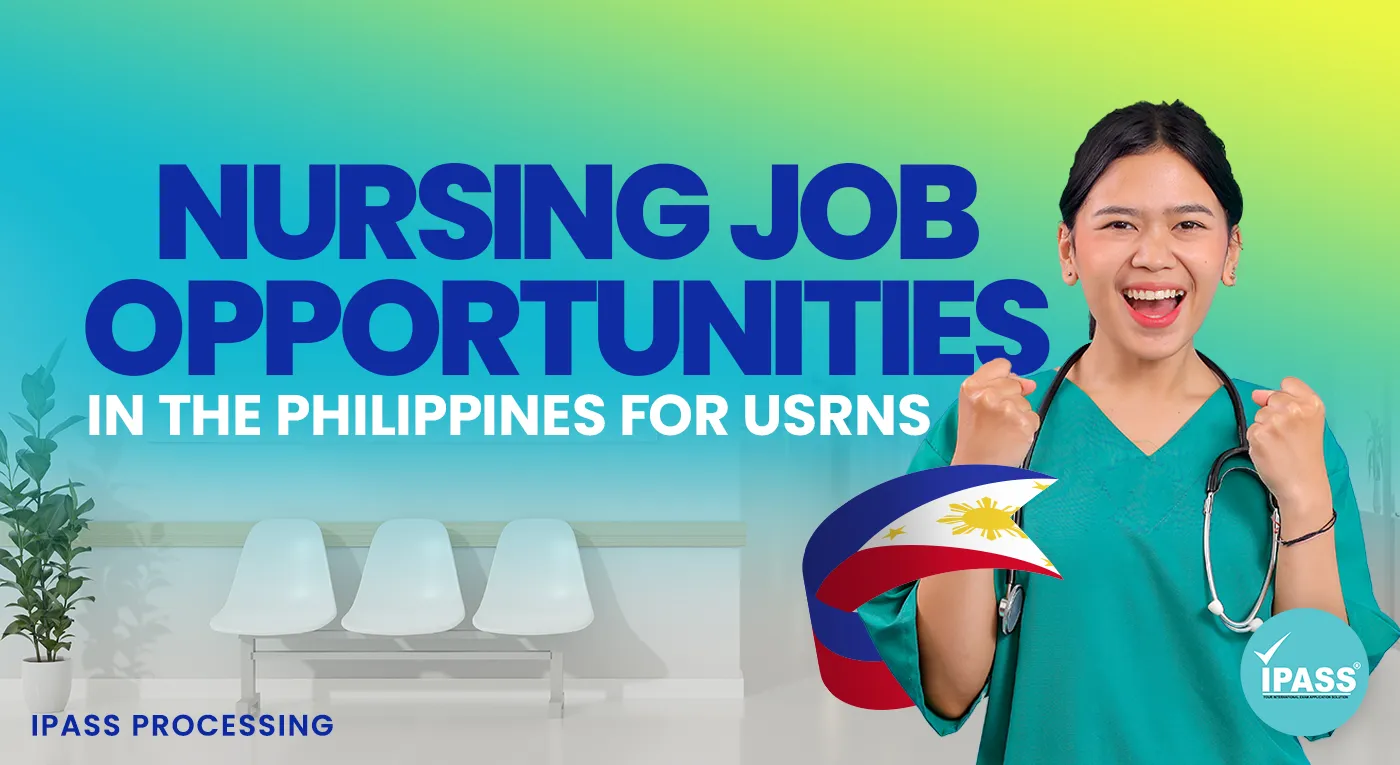
Nursing Job Opportunities in the Philippines for USRNs
(Estimated reading time: 15 minutes)
If you’re a Filipino nurse with a US Registered Nurse (USRN) license, you might be sitting on a goldmine of career opportunities without even realizing it. While many nurses dream of working abroad, there’s a growing Telehealth in the BPO Industry right here in the Philippines. It’s actively seeking professionals with your exact qualifications.
The Business Process Outsourcing (BPO) sector has evolved beyond customer service and now offers specialized roles that require nursing expertise and USRN credentials. Let’s explore how you can transform your nursing license into a rewarding career without leaving the country.
What is a USRN and Why It Matters in the Philippines
A USRN is a nurse who has successfully obtained licensure in the United States by passing the NCLEX-RN examination and meeting all other requirements set by a US state board of nursing. This credential is recognized globally as a mark of nursing excellence and competence, representing a nurse who has met the rigorous standards of nursing practice in the United States.
For Filipino nurses, obtaining a USRN license has traditionally been a stepping stone toward working in American healthcare facilities. The process typically involves:
- Completing a nursing degree in the Philippines
- Passing the Philippine Nursing Licensure Examination
- Meeting eligibility requirements to take the NCLEX-RN
- Studying for the Next-Generation NCLEX and passing the NCLEX-RN examination
- Applying for and receiving a nursing license from a US state board
While this path used to almost exclusively lead to migration, today’s digital economy has created new ways to leverage this credential without leaving home.
The Value of USRN Licensure for Filipino Nurses
Having a USRN license as a Filipino nurse opens doors that remain closed to those with only local credentials. The license demonstrates:
- Proficiency in American nursing standards and practices
- Familiarity with US healthcare systems and terminology
- Advanced knowledge of evidence-based nursing care
- Ability to provide care that meets international standards
These qualities make USRNs particularly valuable to companies that provide healthcare-related services to US-based clients. And this is where the BPO industry comes in.
The Rise of Healthcare BPOs in the Philippines
The Philippines has established itself as a global leader in the BPO industry, employing millions of Filipinos and contributing significantly to the country’s economy. What started primarily as voice-based customer service has evolved into a diverse ecosystem of specialized services across multiple industries.
The country’s success in this sector can be attributed to several factors:
- Strong English proficiency among the workforce
- Cultural compatibility with Western clients
- Government support through incentives and infrastructure
- Lower operational costs compared to Western countries
- A large pool of college-educated professionals
These advantages have allowed the Philippine BPO industry to move up the value chain, from basic call center operations to knowledge-intensive processes requiring specialized expertise.
Healthcare-Focused BPO: A Growing Niche
Healthcare BPO represents one of the fastest-growing segments within the industry. The US healthcare system, faced with rising costs, staffing shortages, and increasing administrative burdens, has increasingly turned to outsourcing as a solution. Philippine BPOs have responded by developing specialized healthcare divisions that handle everything from medical transcription to complex clinical decision support.
For these services, companies don’t just need people with good English skills – they need professionals who understand healthcare terminology, clinical processes, and medical documentation. This is where USRNs become particularly valuable.
Several major healthcare BPO companies have established operations in the Philippines, including:
- Optum (a UnitedHealth Group company)
- Cognizant
- Accenture Health
- Teleperformance
- TaskUs
These companies provide services to US hospitals, insurance companies, pharmaceutical firms, and other healthcare organizations – all of which operate under US regulations and standards that USRNs are already familiar with.
Job Opportunities for USRNs in Philippine BPOs
US-registered nurses in the Philippines have numerous opportunities in the BPO industry. Here are specific positions you can apply for:
1) Clinical Documentation Improvement Specialists
One of the most common roles for USRNs in BPOs involves reviewing and improving clinical documentation to ensure accuracy, completeness, and compliance with US coding standards. In this role, you would:
- Review patient records and medical documentation
- Identify missing or unclear information
- Ensure proper diagnosis and procedure codes are used
- Communicate with US-based healthcare providers to clarify documentation
- Help optimize reimbursement while maintaining compliance
This position leverages your clinical knowledge and understanding of medical conditions while also developing your expertise in healthcare documentation and coding systems.
2) Utilization Review Positions
Utilization review is another area where USRNs excel in the BPO environment. These positions involve evaluating the necessity, appropriateness, and efficiency of healthcare services provided to patients. Your responsibilities might include:
- Reviewing admission requests and continued stay reviews
- Applying evidence-based criteria to determine medical necessity
- Collaborating with case managers and physicians
- Ensuring compliance with insurance requirements and regulations
- Making recommendations regarding appropriate levels of care
These roles require strong clinical judgment and the ability to apply medical knowledge to complex cases – skills that USRNs have developed through their education and licensure process.
3) Virtual Nurse Consultation Services
The COVID-19 pandemic accelerated the adoption of telehealth worldwide, creating new opportunities for remote nursing services. As a USRN in a BPO setting, you might provide:
- Virtual triage and initial assessment
- Health education and coaching
- Medication management support
- Post-discharge follow-up care
- Chronic disease management assistance
These services allow you to maintain direct patient interaction while working from the Philippines, serving patients located in the United States.
4) Healthcare Coordination Programs
Another growing area involves coordinating care for patients with complex needs. In these roles, USRNs:
- Facilitate communication between different healthcare providers
- Help patients navigate the healthcare system
- Develop and monitor care plans
- Identify potential gaps in care
- Track patient progress and outcomes
These positions combine clinical knowledge with care management skills and often focus on improving patient outcomes while reducing healthcare costs.
5) Medical Coding and Revenue Cycle Management
While not exclusively for USRNs, medical coding and billing positions often prefer candidates with clinical backgrounds, as they can better understand complex medical cases and documentation. In these roles, you might:
- Assign appropriate diagnosis and procedure codes
- Ensure documentation supports the codes assigned
- Identify potential compliance issues
- Help optimize legitimate reimbursement
- Resolve coding-related denials and rejections
Many USRNs find that their clinical knowledge gives them an edge in these positions, allowing for more accurate and efficient coding compared to non-clinical staff.
Salary and Benefits for USRNs in BPO Settings
Let’s examine why the BPO industry increasingly attracts Philippine and US-registered nurses seeking alternative career opportunities. This growing trend reflects both healthcare challenges and the unique skills these professionals bring to customer service roles in healthcare-adjacent fields.
Comparative Analysis: Hospital vs. BPO Compensation
One of the most attractive aspects of BPO employment for USRNs is the competitive compensation. While specific salaries vary based on experience, specialization, and company, USRNs in BPO settings typically earn significantly more than their counterparts in local hospitals.
According to industry data, the salary comparison looks something like this:
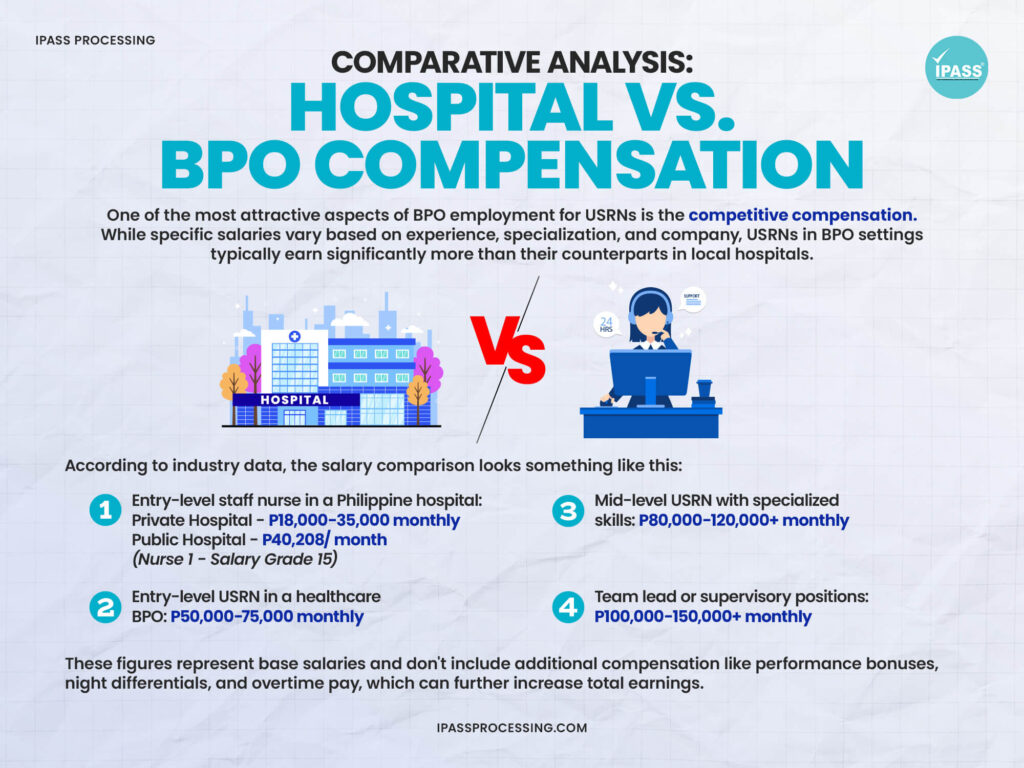
- Entry-level staff nurse in a Philippine hospital:
Private Hospital – ₱20,000-35,000 monthly
Public Hospital – ₱40,208/ month (Nurse 1 – Salary Grade 15) - Entry-level USRN in a healthcare BPO: ₱45,000-60,000 monthly
- Mid-level USRN with specialized skills: ₱60,000-100,000+ monthly
- Team lead or supervisory positions: ₱100,000-150,000+ monthly
These figures represent base salaries and don’t include additional compensation like performance bonuses, night differentials, and overtime pay, which can further increase total earnings.
Additional Benefits and Perks in BPO Companies
Beyond the basic salary, healthcare BPOs typically offer comprehensive benefits packages to attract and retain talent, especially USRNs. These often include:
- Health insurance with dependent coverage
- Retirement plans with employer matching
- Paid time off and sick leave
- Professional development allowances
- Transportation or location allowances
- Meal subsidies or free meals during shifts
- Wellness programs and gym memberships
- Employee assistance programs
- Opportunities for international travel or training
- NCLEX application sponsorships are also provided by some BPO companies.
Many companies also provide career development paths specifically designed for healthcare professionals, allowing for advancement without sacrificing your nursing identity.
How to Transition from Clinical Practice to BPO
While your USRN license gives you a strong foundation, succeeding in a BPO environment requires additional skills:
- Computer proficiency
Comfort with various software applications, electronic health records, and digital communication tools - Attention to detail
Ability to spot discrepancies or inconsistencies in medical documentation - Excellent written communication
Clear, concise, and grammatically correct writing for documentation and correspondence - Time management
Efficiency in handling multiple cases or projects simultaneously - Adaptability
Willingness to learn new systems, processes, and technologies - Critical thinking
Applying clinical judgment to complex situations - Cultural sensitivity
Understanding of American healthcare culture and patient expectations
Many of these skills are transferable from clinical practice, but you may need to adapt them to the BPO context.
Challenges and Considerations for Nurses in BPO
One of the realities of working in a BPO that serves US clients is the need to align with American time zones. This often means working night shifts or early morning schedules. Before making the transition, consider:
- Your ability to adapt to non-traditional working hours
- The impact on your family and social life
- Strategies for maintaining health and well-being while working nights
- Transportation and safety concerns for commuting during off-hours
Some companies offer flexible scheduling or rotating shifts to mitigate these challenges, while others may have dedicated day shift positions for certain functions.
Clinical Skills Maintenance
For many nurses, a concern about moving to BPO work is the potential erosion of clinical skills. If you hope to eventually return to bedside nursing or maintain your clinical edge, consider:
- Pursuing part-time clinical work alongside your BPO position
- Volunteering for healthcare missions or community service
- Staying current with continuing education and certifications
- Participating in skills workshops or refresher courses
- Joining professional nursing organizations
Many USRNs find that BPO roles actually enhance certain aspects of their nursing knowledge, particularly in areas like documentation, care coordination, and evidence-based practice.
Future Prospects for USRNs in Philippine BPOs
The healthcare BPO sector in the Philippines shows no signs of slowing down. Industry analysts project continued growth driven by:
- Ongoing healthcare staffing shortages in the US
- Increasing administrative burdens on US healthcare providers
- Growing adoption of telehealth and digital health solutions
- Rising healthcare costs creating pressure for efficient operations
- Expansion of value-based care models requiring care coordination
As the industry grows, so does the demand for qualified USRNs who can bridge the gap between clinical knowledge and administrative functions.
Career Advancement Opportunities
For USRNs who excel in the BPO environment, numerous advancement paths exist:
- Team leadership and management positions
- Training and quality assurance roles
- Process improvement and workflow design
- Subject matter expert and consultant positions
- Program development and implementation
- Client relationship management
- Operations management
Many USRNs find that the BPO environment offers faster advancement opportunities than traditional hospital settings, with the potential to reach management positions within a few years rather than decades.
IPASS Processing: Your Path to USRN Success
Achieving a USRN license represents more than exam success—it’s about building a comprehensive professional healthcare foundation. IPASS Processing stands as a specialized academy dedicated to transforming nursing career aspirations into reality. Our approach transcends traditional review methods by offering:
Comprehensive NCLEX Preparation Strategies

- UNLIMITED NEXT-GEN NCLEX UNTIL YOU PASS
- 316 Hours of High-Yield Next-Gen NCLEX Classes
- 24/7 Unlimited Access to Class Recordings
- 4 Assessment Exams (Initial, Midterm, Final, Mock)
- 1,418 Next-Gen NCLEX Questions
- 2,700 Traditional NCLEX Questions
- Test-Taking Strategies & Performance Tracking Tool
- Exclusive “Roadmap to NCLEX” Book & Visuals (Soft Copy)
- Downloadable Handouts
- 1-on-1 Personalized mentorship from experienced USRN professionals currently practicing in the United States
- Personalized Study Plan Development
- Evidence-based study methodologies aligned with current US nursing standards
- Exclusive Classes & Workshops
IPASS Processing doesn’t just prepare you for the NCLEX—we prepare you for a dynamic, evolving healthcare landscape. Our holistic approach ensures nurses are equipped not just with theoretical knowledge, but with practical skills and clinical judgement demanded by modern healthcare systems.
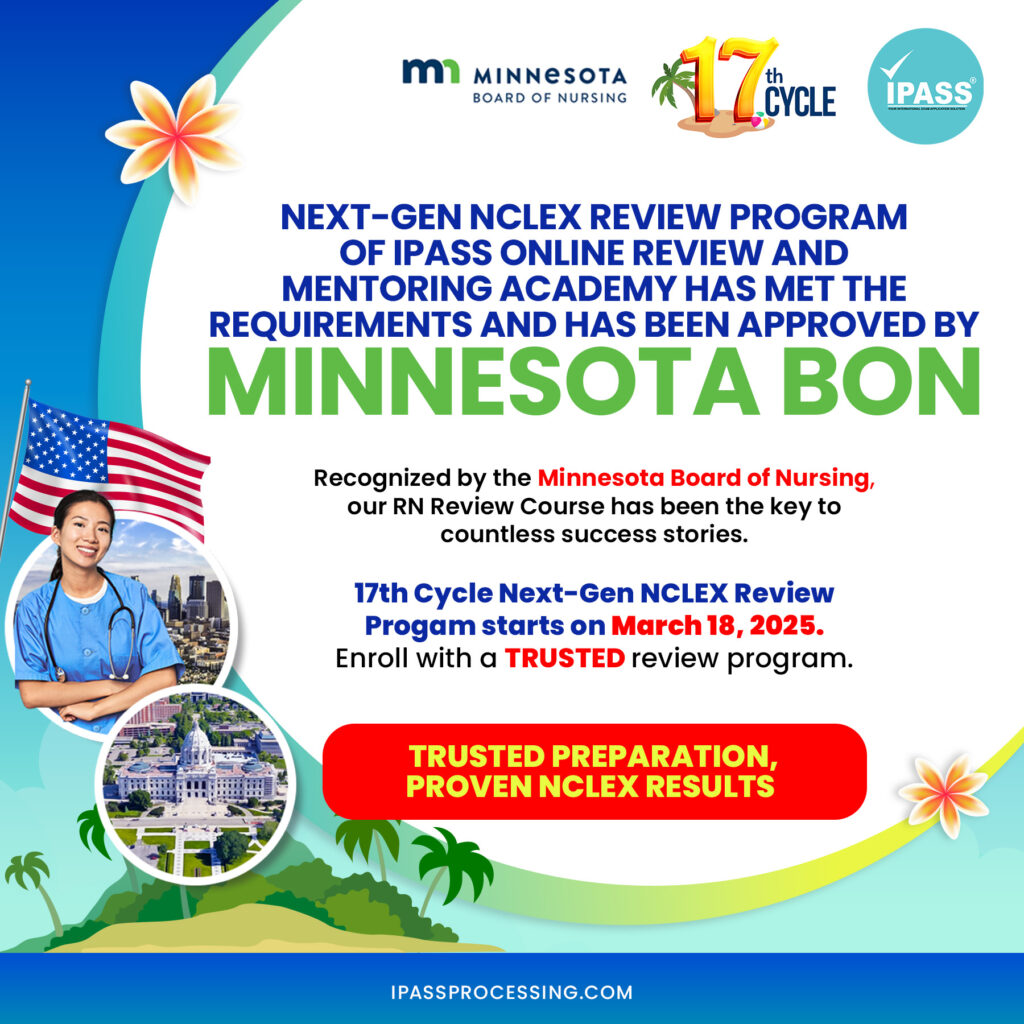
Choosing IPASS Processing means investing in a comprehensive, supportive pathway to your USRN credentials and beyond. We transform examination preparation into a strategic career development journey. As a testament to our quality and standards, the IPASS Processing NCLEX Online Review is approved by the Minnesota Board of Nursing.
Leverage Your USRN License into Competitive Pay in the Philippines
The growing healthcare BPO industry in the Philippines offers a compelling alternative for USRNs who want to leverage their credentials without leaving the country. With competitive salaries, comprehensive benefits, and diverse career paths, these positions allow you to utilize your nursing knowledge while developing new skills in a corporate environment.
For nurses awaiting deployment to the United States, working as a USRN in the BPO industry can significantly enhance your resume. The US visa process often takes up to 2 years, providing an excellent opportunity to utilize your USRN license while earning competitive wages in the Philippines. This strategic choice allows you to maximize both your time and resources, while continuously developing your expertise as a US-registered nurse.
If you’re a USRN considering your career options, exploring opportunities in healthcare BPOs might be one of the most rewarding decisions you make. Your American nursing license could be the key that unlocks a fulfilling career path right here in the Philippines.
So what are you waiting for? Schedule a FREE CONSULTATION with IPASS today and take the first step toward securing your USRN license!
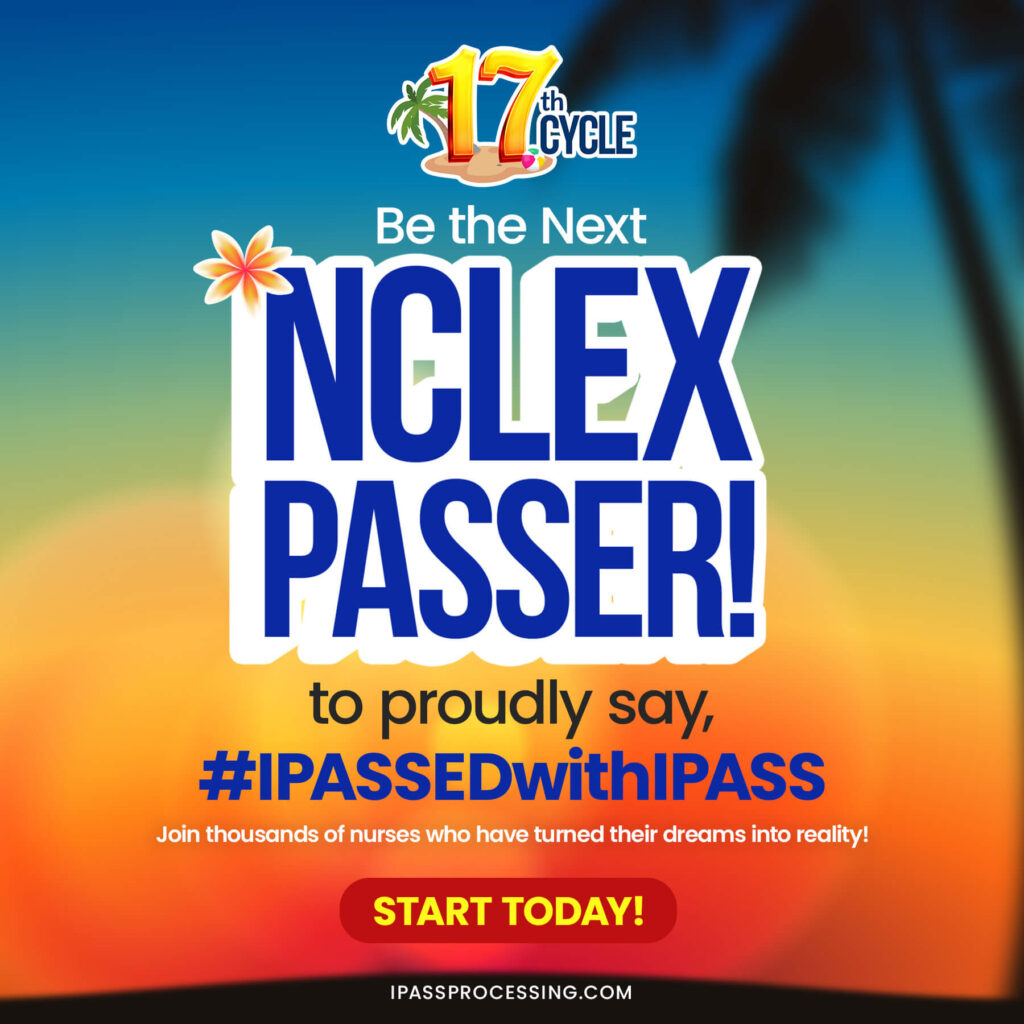
Frequently Asked Questions
1. Do I need to have actual US working experience to qualify for USRN positions in BPOs?
No, actual US work experience is not typically required. The primary requirement is having passed the NCLEX-RN and obtaining a valid US nursing license. However, any US healthcare experience you do have will be considered a significant advantage during the application process. Companies value your understanding of US nursing standards and healthcare systems, which you’ve demonstrated by earning your USRN credential.
2. Can I work in a healthcare BPO while preparing for US migration?
Absolutely! Many nurses use BPO positions as stepping stones while waiting for US visa processing or gathering additional resources for migration. The experience can actually enhance your resume for US employers, as you’ll develop familiarity with US healthcare documentation and processes. Some BPO companies even have affiliate facilities in the US and may offer pathways to transfer after a certain period of employment.
3. Will working in a BPO affect the validity of my USRN license?
This depends on the specific state where you hold your license. Some states require active clinical practice to maintain licensure, while others focus on continuing education requirements. It’s important to check the requirements of your licensing state and ensure you’re meeting them while working in a BPO. Many nurses maintain their license by completing the required continuing education units (CEUs) and, if necessary, working part-time in clinical settings.
4. Are there opportunities for nurses without USRN licenses in healthcare BPOs?
Yes, though the range of positions may be more limited. Some entry-level roles in medical coding, transcription, or customer service may accept Philippines-licensed nurses without USRN credentials. These positions typically offer lower compensation than USRN-required roles but can provide valuable experience in the industry. Some companies also offer support for promising employees who wish to pursue their USRN license while working.
5. How do I verify that a healthcare BPO company is legitimate before applying?
Research the company thoroughly by checking their official website, LinkedIn presence, and business registration with the Philippine Economic Zone Authority (PEZA) or Securities and Exchange Commission (SEC). Legitimate companies will have physical offices in established business districts or IT parks, transparent recruitment processes, and won’t ask for payment during application. You can also check with the IT and Business Process Association of the Philippines (IBPAP) for registered member companies or ask for recommendations from other USRNs already working in the industry.
Recommended Reads
- Nursing Job Opportunities in the Philippines for USRNs
- AHPRA Registration 2025: Updated Pathways for IQRNs
- The Benefits of Pursuing a Midwifery Career in the UK
- Types of Nurses: Discover Your Perfect Nursing Path
- IPASS Online NCLEX RN Review Course Now on Its 17th Cycle
Recommended Topics
- ASCPi (1)
- Australia (8)
- Canada (5)
- Exam Tips (28)
- General (120)
- IPASS Events (10)
- IPASS News (130)
- Middle East Nursing (17)
- NCLEX (63)
- New Zealand (3)
- NMBI Ireland (1)
- Online Review (13)
- PNLE Online Review (1)
- Tourist Visa (1)
- UKNMC (1)
- US Nursing (12)
- UWorld (1)
- VisaScreen (3)
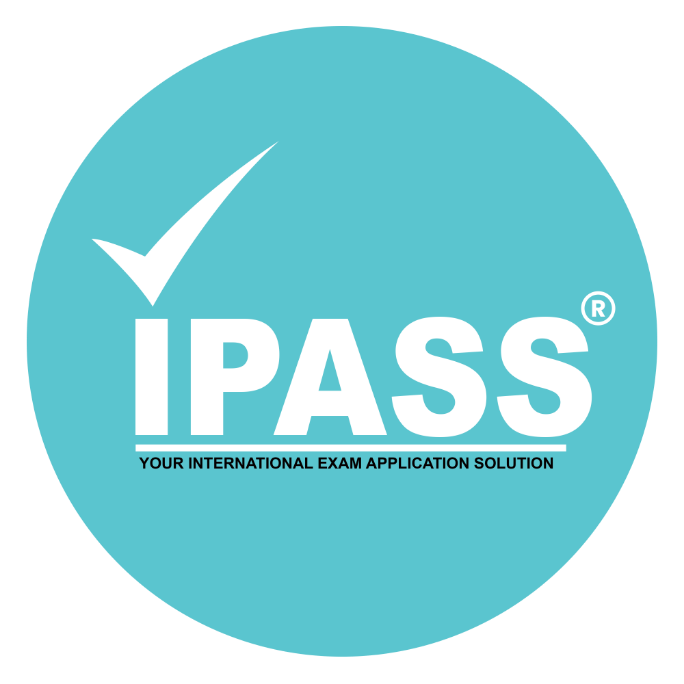







Leave a Reply